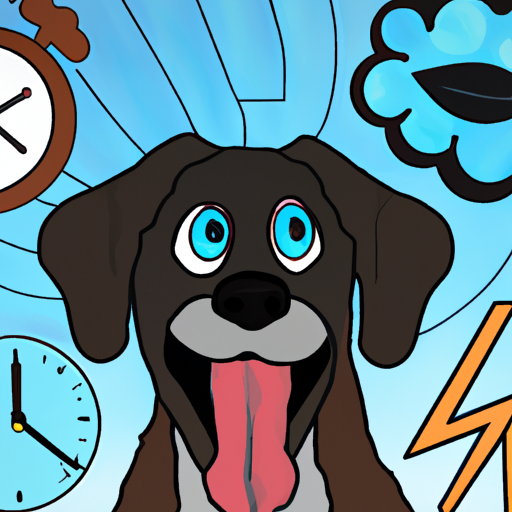Understanding Your Dog’s Behavior
Undoubtedly, you love your four-legged friend, and you always strive to understand their behaviors and emotions. Panting is a common behavior you’ve probably noticed in dogs, but what does it mean? While panting is often associated with heat or exercise, it can also be a sign of stress or anxiety in dogs. Understanding this can be a crucial part of your role as a caregiver.
The Science Behind Panting
Now that you’re aware that panting can be a stress signal, let’s delve into the science behind it. Dogs pant as a means of cooling their bodies because unlike humans, they can’t sweat through their skin. Instead, dogs evaporate water from their mouths and upper respiratory tract, effectively cooling themselves down as air passes over the wet tissues. However, when a dog is stressed or anxious, its heart rate increases and it may begin to pant, similar to how some people may start to sweat when they’re nervous.
- Heat Panting: Dogs pant more when it’s hot because they’re trying to cool down.
- Exercise Panting: Dogs also pant when they’re exerting physical energy.
- Stress Panting: If your dog is panting without a clear reason, they could be feeling stressed or anxious.
Recognizing Stress Panting in Your Dog
Now that you understand the science behind panting, it’s time to learn how to distinguish stress panting from regular panting. Stress panting tends to be louder and more intense than regular panting. Additionally, other signs may accompany stress panting:
- Pacing
- Whining or barking
- Loss of appetite
- Excessive licking or chewing
Ways to Help Your Dog Manage Stress
You’ve identified that your dog is showing signs of stress panting. What now? As a caregiver, there are several ways you can help your dog manage their stress.
- Create a Safe Space: All dogs should have a safe, comfortable space where they can retreat when they feel stressed. This could be a designated room, a crate, or a comfortable bed in a quiet area of your home.
- Regular Exercise: Regular physical activity can help reduce stress, just like in humans.
- Consult a Vet: If your dog’s stress seems severe or prolonged, it may be time to consult with a veterinarian. They can offer additional insights and potential treatments.
FAQ
Q: Do all dogs pant when they’re stressed?
A: Not necessarily. Panting can be a sign of stress, but not all dogs will pant when they’re stressed. It’s essential to know your dog and their individual behaviors.
Q: Can panting be a sign of health issues?
A: Yes, panting can sometimes be a sign of health issues like heart problems, respiratory disorders, or certain types of metabolic disorders. If your dog’s panting seems abnormal or excessive, it’s always a good idea to consult with a vet.
Q: What other signs might a dog show if they’re stressed?
A: Dogs might also show signs like pacing, hiding, loss of appetite, or changes in behavior. Remember, each dog is unique and might show stress in different ways.



